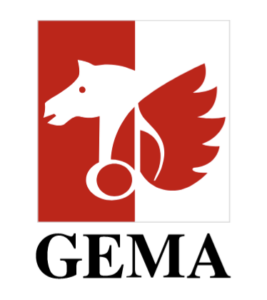Collaboration, Listening, Acoustic Justice
October 24, 2020 / 19:00 – 22:00
ONLINE VIA ZOOM
Registration: lm@dystopie-festival.net
With presentations by:
Brandon LaBelle, On the question of listening
Achim Lengerer/Scriptings, Models for Rehearsing the Script
The experiences of hearing and being heard contribute greatly to the work of recognition and mutuality, supporting the building of community as well as the struggles by which to resituate identity. Through a range of acoustic gestures and practices, from disruptive signals to vibrant ecologies of togetherness, hearing and being heard become scenes or processes of reorientation, affinity, escape, and solidarity. The issue of social acoustics is put forward as a research framework in order to map out the ways in which sound and listening lend to social, cultural, and political experiences and imaginaries. In addition, the topic of acoustic justice is raised, suggesting that the movement of sound through a given environment carries questions of social equality and the power of aurality. How might we think through understandings of agency from a sonic perspective? Are there particular listening practices that may impact onto scenes of injustice? What types of acoustic arrangements might we make in support of a diversity of voices and orientations?
The seminar brings together participating artists to reflect upon sounding and hearing, collaboration and listening, and how these operate within their own practices. This includes questions of musicality and (social) composition, radio practices and sonic archiving, voice and embodiment.
The second in a series of three seminars planned at Errant Sound. Upcoming seminars include: November 15 with Julia Tieke, introduced and moderated by Brandon LaBelle.
Social Acoustics is an artistic, collaborative research project based at the Departments of Fine Art and Music, at the University of Bergen. It focuses on the potentialities of sound’s relational, material, and artistic qualities, and questions in what ways listening contributes to social and political imaginaries.
http://socialacoustics.net/
https://www.communitiesinmovement.net/
Brandon LaBelle is an artist, writer and theorist working with sound culture, voice, and questions of agency. He develops and presents artistic projects and performances within a range of international contexts, often working collaboratively and in public. Works include “The Other Citizen”, Club Transmediale, Berlin (2019), “The Autonomous Odyssey” (with Octavio Camargo), Kunsthall 3,14 Bergen (2018), “The Ungovernable”, Documenta 14, Athens (2017), “The Hobo Subject”, Gallery Forum, Zagreb (2016), and “The Living School”, South London Gallery (2016). He is the author of The Other Citizen (2020), Sonic Agency (2018), Lexicon of the Mouth (2014), Diary of an Imaginary Egyptian (2012), Acoustic Territories (2010; 2019), and Background Noise (2006; 2015). He lives in Berlin and is Professor in new media at the The Art Academy, University of Bergen.
Artist and editor Achim Lengerer works on questions of political speech and language that he addresses in his live performances, filmic soundtracks or spatializes within installations and printed matter. Lengerer was educated at the Academy for Film and TV, FAMU, Prague, the STÄDELSCHULE, Frankfurt and the SLADE School of Fine Arts, London and completed his post-graduate studies at the Jan-van-Eyck-Academie, Maastricht, NL, in 2008. Lengerer founded different collaborative projects such as freitagsküche in Frankfurt a. M., and voiceoverhead, with artist colleague Dani Gal (ISR). Since 2009 Lengerer runs the Berlin based showroom, production- and publishing house Scriptings. Artists, writers, filmmakers, performers as well as activists are invited – all of which are working with the formats of script and text within their processes of critical production. Lengerer is currently finishing his Ph.D. at Goldsmiths, University of London, on the format of the collective rehearsal as an artistic and political model for spaces of social negotiation(s).
With kindly supported by:

